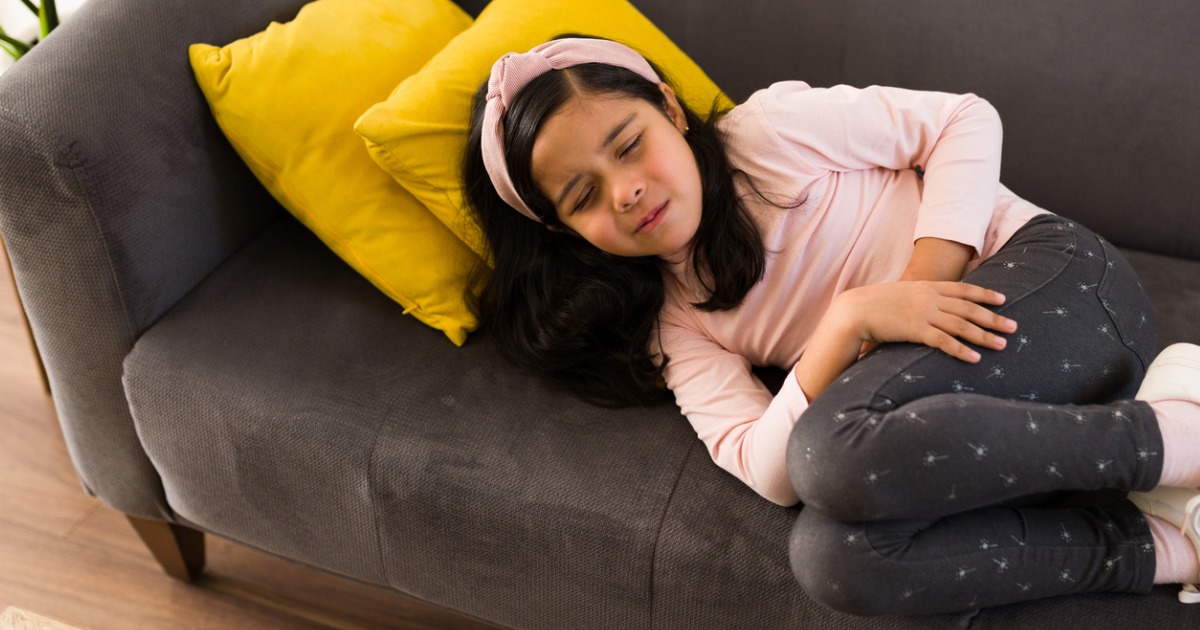1. When in doubt, believe them.
Research shows that kids are very unlikely to fake their symptoms, so assume they do have a stomachache. At Connecticut Children’s, of course we take kids’ complaints very seriously—it’s our job! So we encourage you to hear them out, first and foremost.
2. You’ve listened. Now, resist the temptation to problem-solve right away.
Jumping to immediate conclusions or solutions like, “It’s because you’re nervous!” or, “It’s the first day of school—don’t worry—you’ll get better,” can actually send kids a subtle message that you might not believe them. Depending on the age, this can backfire and actually cause them to complain more to get your attention—how frustrating! Try, however, to resist the urge to get frustrated. Here are some helpful things to say instead:
- “I’m really sorry to hear that your belly hurts.”
- “It sounds like you’re feeling uncomfortable. Can you show me where it hurts?”
3. If they complain about belly aches again—and again?
Take a deep breath—as a parent, you have the power to model calm. Briefly reassure them that their doctor has said that even though the belly hurts, it is does not mean that they are in danger. Pain in our bodies sometimes is a “false alarm,” kind of like a sensitive car alarm going off when a shopping cart grazes it. Just because the alarm may sound does not mean something bad is happening.
4. Should I keep them home from school?
It could be very tempting to respond to the bellyaches with a sense of alarm and danger, because you as a parent want to bring your child relief as quickly as possible. However, if your doctor has given the seal of approval – it is actually really valuable to help your kids see that they can keep doing things even while having belly pain. Show them that having a belly ache need not cause panic and they are able to still carry on with daily life. Easier said than done, but again, believe and partner with your child on this.
Here’s what you can say:
- “Hmmm. It seems like you’re worried about going to school while feeling this badly. We know that going to school is something you have to do and that your doctor has told us it’s safe for you to be there. Let’s figure out how to get you there.”
- This collaborative approach might work wonders on teenagers—give it a try!
- “Sometimes, belly aches can happen when you start something new. I wonder if that’s something you’re noticing right now.
This approach is great for elementary school kids who are just learning the concept of normalizing situations.
Here are some activities to try:
- “Team up” with your child to go on a curiosity investigation together to see what might be related to the bellyache. Is it an, “I ate too much last night” kind of pain or an, “I’m feeling worried about something,” kind of pain?
- After identifying the feeling, ask them what they would like to do about it. They can hug or talk to someone, draw it out, put a family or pet picture in their backpack to take to school and more.
- For older toddlers, preschoolers and kindergartners, create an actual coping toolbox they can open for when they feel pain or nervousness. Inside could be comforting items like bubbles, a fidget spinner, aromatherapy or a small snow globe.
>Related: What to Do When Your Child or Teen Doesn’t Want to Go Back to School

